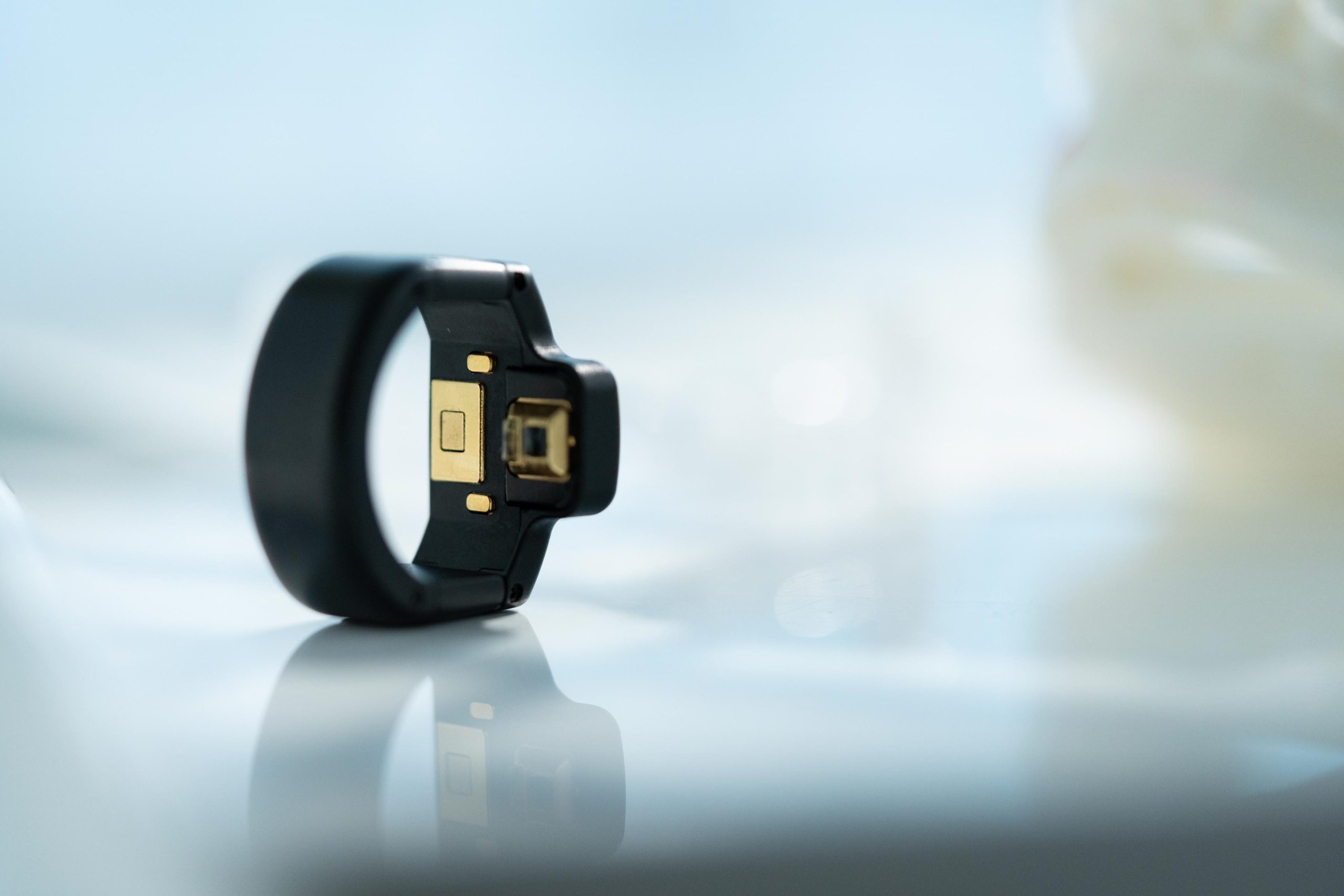Snoring / Sleep apnea
While occasional snoring is harmless for most people, repeated pauses in breathing can be a sign of a serious medical condition. If you have concerns about your snoring, seek medical advice. Timely detection and treatment of obstructive sleep apnea (OSA) can significantly improve not only your sleep quality but also your overall health.
Cause analysis in the sleep laboratory
Before we begin treatment, we dedicate ourselves to identifying the causes of sleep problems. Our patients can choose between an examination in the sleep laboratory and sleep tracking on their own four walls using advanced technologies.
Another exciting option is the “Smart Ring”, which constantly measures the oxygen content of the blood and makes the data available directly on an app.

Conservative treatment with dental splints
A special dental splint can help to stop snoring and pauses in breathing. This splint, called mandibular advancement splint, is worn while sleeping. It helps keep the tongue in a specific position by optimally aligning the lower jaw. This makes breathing easier while preventing snoring. This enables a restful sleep. Ideal for anyone looking for a comfortable, non-invasive solution to their snoring problem or sleep apnea.
Our “anti-snoring splints” are individually made to measure using CAD design in our partner laboratory in Zurich. They are comfortable to wear and adapt perfectly to the mouth. Depending on individual needs and anatomy, the Profilance Clinic offers various types of splints made from different materials, with currently three selectable stabilisation options.
When necessary, natural mouth movements and speaking are still possible. Thanks to the resistant and at the same time elastic material, we can guarantee a high level of wearing comfort as well as a long service life for the splints.
Surgical options to eliminate snoring
There are also surgical ways to treat obstructive sleep apnea: nasal dysfunction, tongue pacemaker, mandibular osteotomy, and maxillomandibular osteotomy.
- Nasal function corrections aim to improve nasal breathing caused by structural abnormalities such as a deviated nasal septum, enlarged nasal turbinates or narrowings in the nasal passages.
- A tongue pacemaker is a small medical device that – similar to a cardiac pacemaker – electrically stimulates the nerves of the tongue muscles. This prevents the tongue from falling back and blocking the airway during sleep.
- During the lower jaw osteotomy, known as “snoring surgery,” the lower jaw is pushed further forward, giving the tongue more space and expanding the airways. During the maxillomandibular osteotomy, the upper and lower jaw are moved forward.
- All interventions require careful planning and evaluation. We are aware that not every sleep apnea patient is suitable for these specific treatments. Our recommendation for or against surgery is always based on an exact diagnosis, the degree of sleep apnea and individual facial and jaw structures.
We carry out the operations in renowned clinics in Zurich, including the Limmat Clinic and the Bethanien Clinic.



